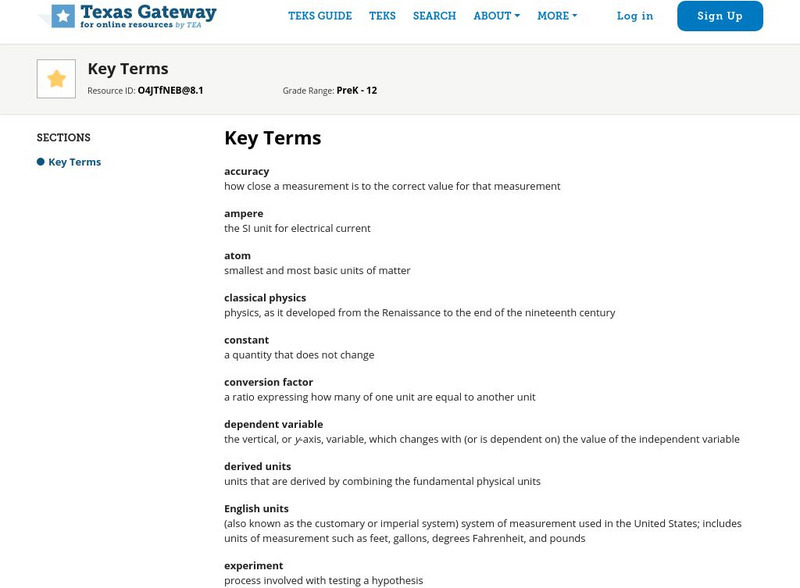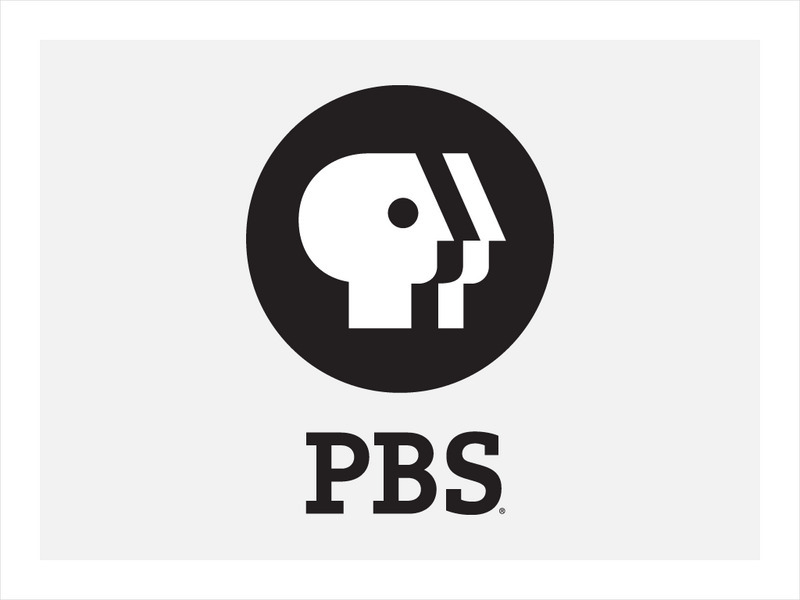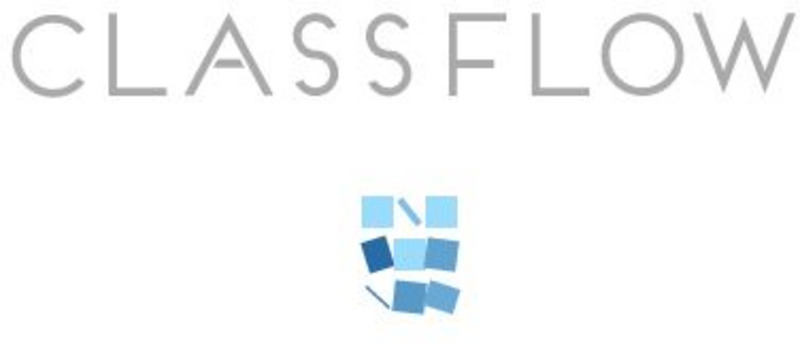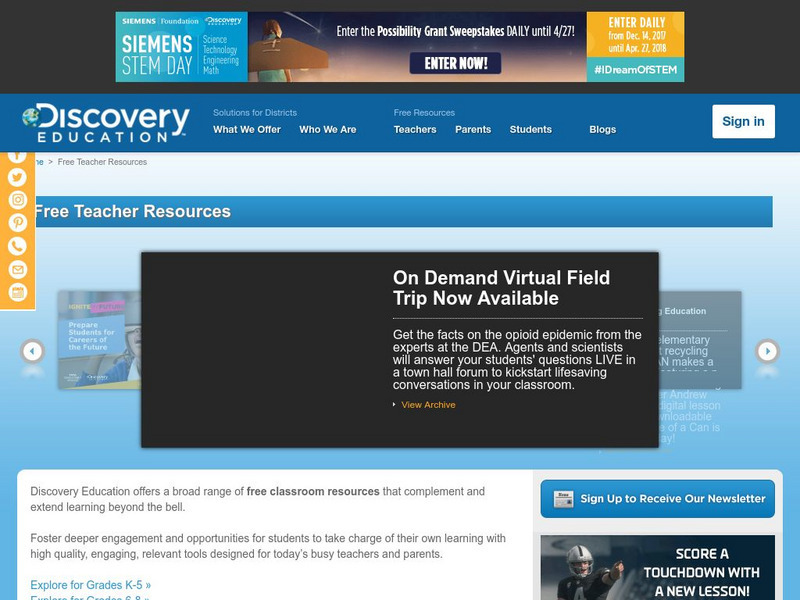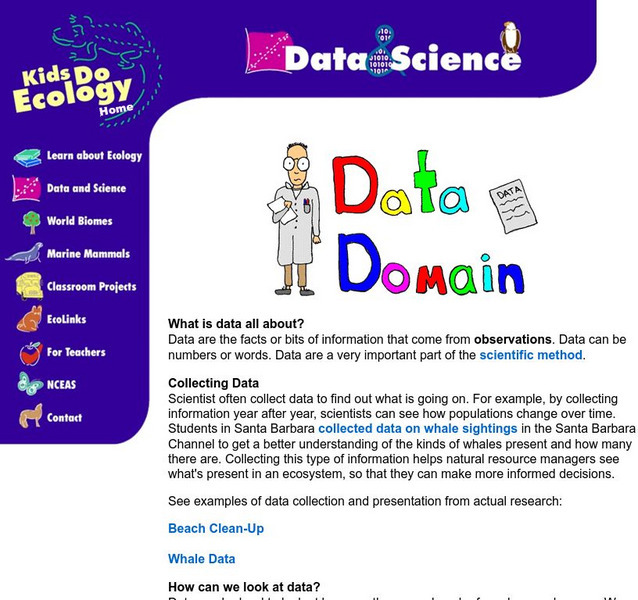TeachEngineering
Teach Engineering: Students as Scientists
This curricular unit contains two lessons that let students actually do the work of scientists as they design their own experiments to answer questions they generate. In the first lesson and its associated activity, students conduct a...
Science Education Resource Center at Carleton College
Serc: Physiology Monitoring and Cycles Lab With Report
Using physiology monitoring, students will understand how to collect data using scientific methods in this activity. Students will also learn how to communicate the finding in a lab report. Physiology monitoring will include measuring...
Science Education Resource Center at Carleton College
Serc: Boiling Water With Ice: Effect of Pressure on the Boiling Point of Water
In this activity, which is a discrepant event with guided inquiry, the teacher will go through the steps of boiling water with ice. Through the young scholars telling and recording WHAT is happening, the teacher is showing the students...
CK-12 Foundation
Ck 12: Biology: Science Experiments
[Free Registration/Login may be required to access all resource tools.] Covers the scientific experimental design.
University of California
Ucmp: What Is "Good Science"?
A very good explanation of the scientific process and the differences between science and non-science. This is a concise and clearly written description.
Khan Academy
Khan Academy: Biology: Controlled Experiments
An article that explores how scientist conduct controlled experiments to test hypotheses.
Quia
Quia: Nature of Science
Find games and flashcards that students can use to learn the words associated with the scientific method.
Other
Science Fair Primer: Reporting the Results
A good explanation of the elements of a good science fair report written by a high school science teacher. Details are given step by step on stating the hypothesis, explaining the experimental procedure, presenting the data attained, and...
Other
Csicop: Field Guide to Critical Thinking
This article, originally published in Skeptical Inquirer, outlines some of the key components of the scientific problem-solving process while addressing the many reasons for the popularity of paranormal beliefs in the U.S. (Published in...
NASA
Nasa: Space Place: What Is Science?
Students learn abut scientific investigation and the difference between hypotheses and theories.
Alabama Learning Exchange
Alex: Bloodstain Pattern Doesn't Lie
Learners will formulate a hypothesis about the relationship (linear, direct, indirect, etc.) between the distance a drop of blood falls and the diameter of the splatter it makes. To test their hypothesis, the students will work...
Science Education Resource Center at Carleton College
Serc: Candle Drop
By using this discrepant event, learners will be guided through an investigation using a burning candle in a jar. The teacher will hold a burning candle in a jar over his/her head. When dropped, the candle will extinguish when caught....
CK-12 Foundation
Ck 12: Earth Science: Observations and Experiments
[Free Registration/Login may be required to access all resource tools.] Using observations and scientific experiments to test hypotheses.
University of California
Ucmp: Adventures at Dry Creek
For this lesson, students embark on an adventure to find out what life was like in Montana 60-70 million years ago. Students "join" a research lab to collect fossils from Montana and analyze them to find direct and indirect evidence of...
Scientific American
Scientific American: Smart People Believe Weird Things
This article, published by Scientific American (September 2002), explores how smart people can believe weird and silly things. The article comes to the conclusion that our beliefs are shaped more by our environment than our understanding...
Discovery Education
Discovery Education: Science of Everyday Life: Everyday Science of Eggs [Pdf]
A lab where students can investigate eggs and what happens to egg whites after they are beaten. Lesson plan includes teacher background, standards, and a procedure for students to develop their own experiment.
Texas Education Agency
Texas Gateway: What Is Physics?: Key Terms
This is a glossary of key terms and definitions used in Chapter 1: What is Physics? from the online TEA Physics text.
PBS
Pbs: Eggs Plore Science by Making Meringues
Practice the scientific steps of making predictions, observations, and discoveries while making this simple meringue recipe.
PBS
Pbs Teachers: Boats Afloat Experiment
Estimate how many pennies a flatboat made of aluminum foil will hold, then test your hypothesis.
ClassFlow
Class Flow: Science Lab Form
[Free Registration/Login Required] This flipchart is for a group of students or a class to enter science lab information including background, problem, hypothesis, etc. Students are encouraged to photos from their lab work and to create...
University of California
Q Files: Misconceptions About Science
Many students have misconceptions about what science is and how it works. This module explains and corrects some of the most common misconceptions that students are likely having trouble with.
Hunkins Experiments
Hunkin's Experiments
This amazing website provides access to 200 exciting experiments from cartoonist, broadcaster, and engineer, Tim Hunkin. Each experiment is categorized and illustrated.
Discovery Education
Discovery Education: Science Fair Central: Investigation Project Steps
Read and print out steps that will help you with your science fair project, from topic forming and researching to analyzing and drawing conclusions..
National Center for Ecological Analysis and Synthesis, University of California Santa Barbara
Nceas: What Are Data?
This site from NCEAS answers many questions about data. You can also learn about data, tables, and types of graphs in this informative site.



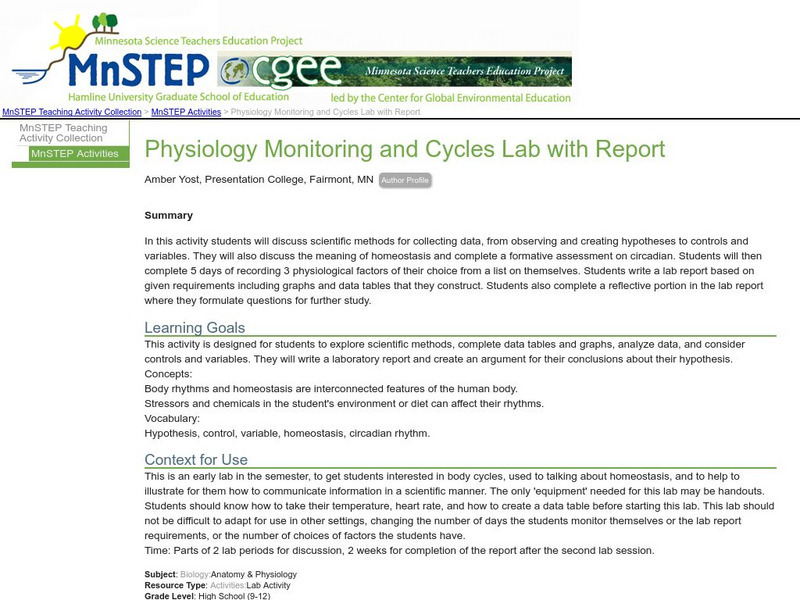


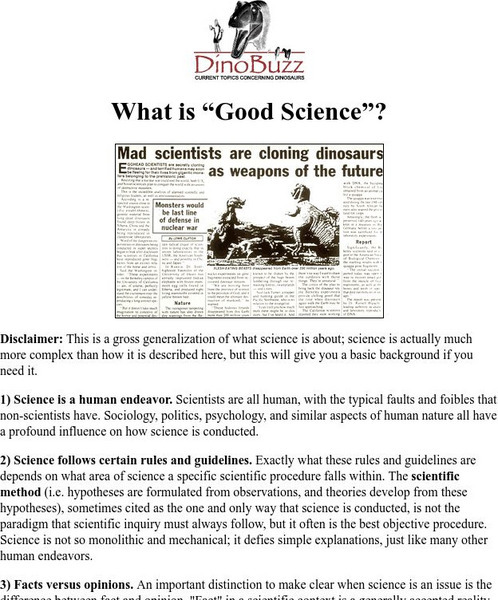
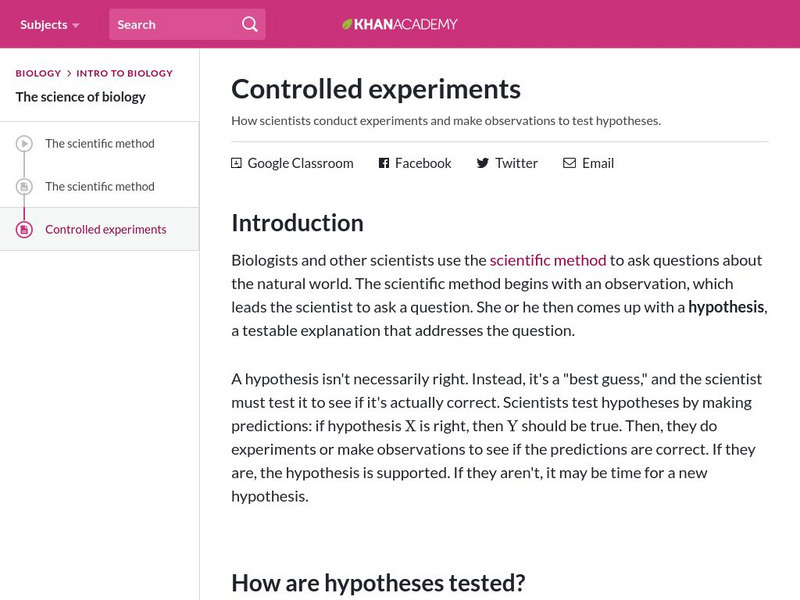
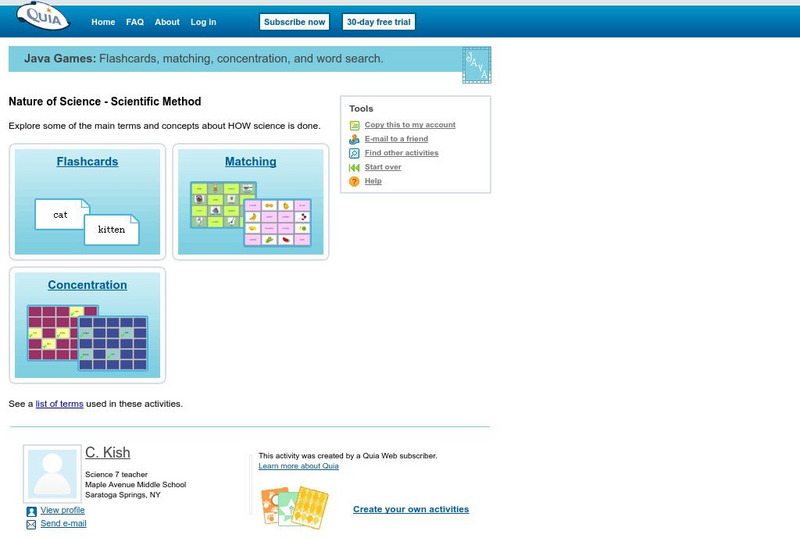






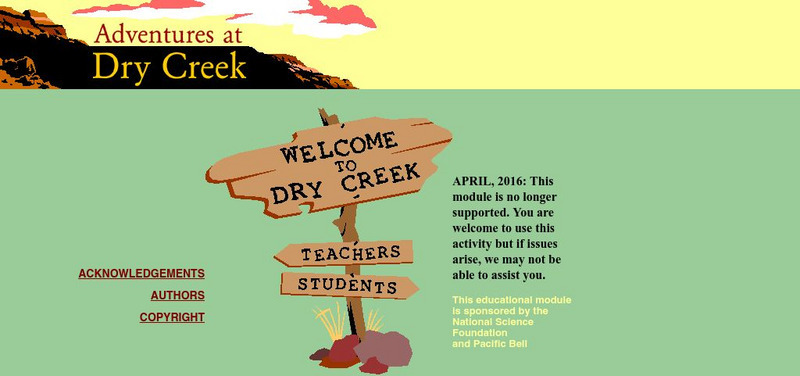
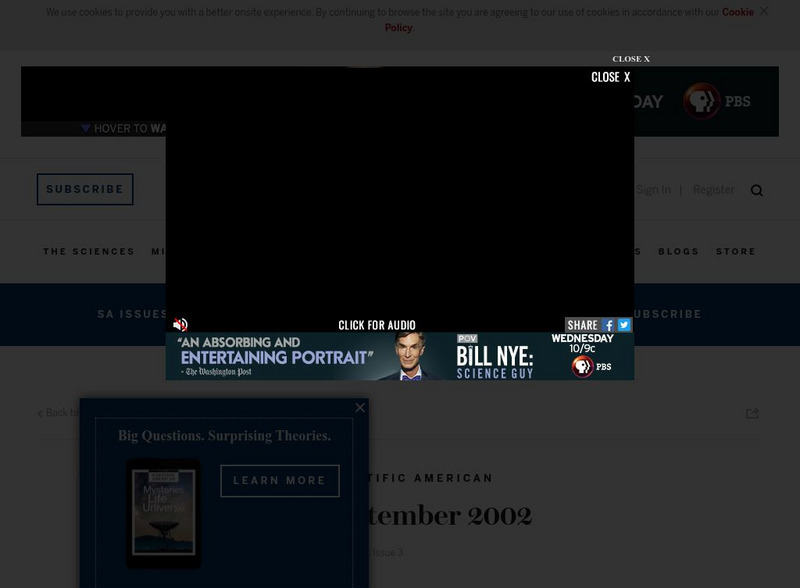
![Discovery Education: Science of Everyday Life: Everyday Science of Eggs [Pdf] Lesson Plan Discovery Education: Science of Everyday Life: Everyday Science of Eggs [Pdf] Lesson Plan](https://d15y2dacu3jp90.cloudfront.net/images/attachment_defaults/resource/large/FPO-knovation.png)
